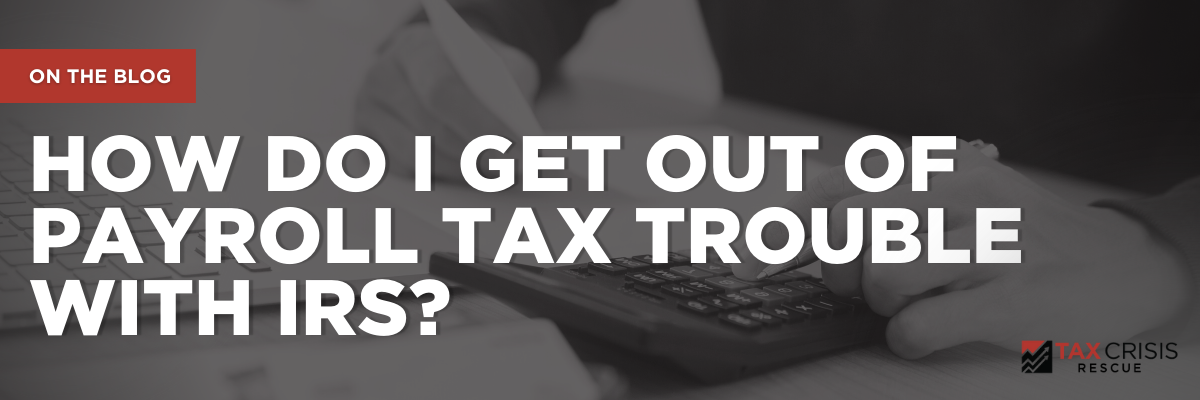Times for most of us have been tough lately, and cash flow shortages are commonplace. Sometimes business owners avoid paying in their employee’s federal withheld taxes as a short-term solution to cash shortages, choosing instead to fund other critical business costs. Intensions are innocent and they expect to “catch up” as soon as that next deposit comes in. Often, when that next deposit arrives there are other urgent cash requirements forcing them to avoid paying the payroll tax again. So the problems begins to get worse creating a snowball effect over time. Now its even more difficult to catch up, survival instincts kick in and payroll taxes become an afterthought.
This is going to cause trouble – lots of it. You see the business owner along with any other responsible party (like the person who signed the 941 return) can be held personally liable for the unpaid tax that the business withheld from its employees. Also, IRS can use forced collection tactics and seize bank accounts, levy business assets and garnish business income and receivables in an effort to collect the delinquent tax debt. Once this happens, the business is left without the resources required to operate and is in dire risk of failure. In some of the more egregious cases, IRS refers the business to its Criminal Investigations division. Here, business owners and responsible parties are threatened with criminal charges and jail time among other consequences.
How does one get out of trouble once this cycle ensnares a business? Often people think it’s a good idea to pay as much as possible towards the oldest debt to start “catching up” with the expectation that over time as the cash position improves the debt will eventually get paid. Not only is this a difficult strategy to pull off, but its also not the best option for long term survival. It does nothing to protect the business from IRS intrusive forced collection tactics.
The first step is for the business to re-establish current compliance. This is not as difficult as it sounds. Current compliance means that all required tax returns have been filed and CURRENT taxes are being paid as they become due. Filing the tax returns is easy and does not require the business pay the tax liability shown on the return. File the return even if unable to pay the tax. Paying CURRENT taxes as they become due means that you start with the very next payroll, and remit the tax on time for that pay period. Continue filing and paying on time. Pretty soon you will have a full quarter of taxes paid with all required returns filed. This established current compliance.
Once you have achieved current compliance, the delinquent tax debt can be repaid over time via a formal installment agreement with IRS. At this point, the IRS non-compliance issues that have been keeping you up at night are merely a bad memory.
If your business is unable to pay in the current taxes as they become due, the process is much more complicated – and IRS gets aggressive. A business in this position will need professional representation from a trusted and experienced tax relief specialist to protect both the business and owners. If you’re in this situation, please reach out to Tax Crisis Rescue to get help immediately from a qualified tax representation professional.

